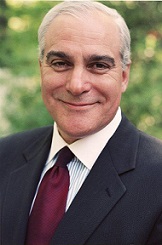Now, more than ever, senior leaders must adhere to their values and organizational purpose to create and maintain employee and stakeholder trust. PricewaterhouseCoopers has been surveying CEOs for 20 years to gain their perspective on major trends affecting industry and the world economy. Its 2016 survey included interviews with almost 1,400 CEOs from 79 countries. The importance of trust in a time of globalization and technological change was front and center in their minds. Eighty-nine percent believe that a strong corporate purpose is more important than ever. Eighty-five percent think that business should take into account stakeholder needs, which can include customers, employees, communities and even governments, in addition to shareholders.
The CEOs regard collaboration with these multiple constituencies as serving a greater purpose and contributing to social well-being. They see business as a force for good. Conscious attention to values and purpose may be bearing fruit. In a separate PwC survey of the general public, 35% agreed that businesses have increased their focus on operating in a way that takes them and community into account. Trust follows.
CEOs have seen the benefits of globalization in helping to increase flows of capital, goods, information and people. Globalization greatly improved global connectivity and contributed to the creation of a skilled workforce. The surprising voting results of 2016, however, particularly in the U.S. and U.K., highlighted pressures against established views on globalization and trade. Moreover, CEOs appeared to have predicted 2016's disruption. In PwC's 2015 survey they identified a trend toward nationalism, devolving nations, and regional trading blocks, and a trend away from political and economic unions and a global market place.
Public discontent over gaps in skills and jobs, and inequality in income, has arisen not just from globalization, but also technology. For those left behind, feeling unheard and under-represented exacerbated discontent. The CEOs acknowledged that global problems, such as climate change and reducing income inequality – the fuel of discontent – were not addressed by globalization and increased use of technology. Public discontent can be a danger to growth, whereas social well-being can drive long-term economic performance.
Especially in this environment, gaining and keeping stakeholder trust can be as fragile as it is critical. Not surprisingly, most CEOs (68%) feel that gaining and keeping trust is harder today than before. Moreover, CEOs see that reputations and trust can be quickly damaged through social media. Eighty-seven percent believe social media could have a negative impact on trust for their industry. In a world of hyper-connectivity, C-suite decisions can be widely and rapidly circulated and stakeholders more often hear of missteps than achievements. This environment requires much more adept communication. Smart use of technology can support and amplify constructive two-way communication. Input reaches senior leaders more easily, strengthening the information needed for sound decisions that support an organization's purpose and trust levels. Additionally, decisions that support stakeholders are more easily communicated.
Employee fears about technology and workplace dislocation due to artificial intelligence and robotics are understandable. CEOs themselves are apprehensive about the speed of technological change (70%). Even so, only 4% plan to cut headcount this year due to technology. CEOs are more concerned about the availability of talent and the shortages of skills (77%), particularly as 52% expect to increase overall headcount.
Given employee fear of technological change, and senior leadership's fear of skill shortages, development of existing employees is acutely important and addresses both concerns. Moreover, to take advantage of new opportunities, most CEOs saw that their organizations needed to strengthen and develop multiple areas, including innovation (23%), human capital (15%), and digital and technological capabilities (15%). Embedding continuous learning into your organization's culture gives employees skills to prepare for a technologically changing world, while ensuring they feel valued. This involves all levels of the organization, but starts with the CEO's commitment. This investment in people provides dividends in profits, builds trust and advances the organization's purpose in this time of disorienting change.
The human touch matters. Creativity and innovation, leadership, emotional intelligence and adaptability, the skills that CEOs named as most important, cannot be reproduced by technology. It is the marrying of technology with uniquely human capabilities that can transform organizations when properly executed. When done well, this is an art that will improve an organization's ability to pursue its purpose and it will increase trust. For example, doctors benefit from automated, data-driven information that enhances diagnostic accuracy, and telemedicine is making healthcare more accessible. Nonetheless, it is the human-to-human interaction and communication that allow patients to trust that they are cared for.
 Stuart Levine is chairman and CEO, Stuart Levine & Associates, EduLeader LLC. He can be reached at 516-465-0800 or [email protected].
Stuart Levine is chairman and CEO, Stuart Levine & Associates, EduLeader LLC. He can be reached at 516-465-0800 or [email protected].
© Touchpoint Markets, All Rights Reserved. Request academic re-use from www.copyright.com. All other uses, submit a request to [email protected]. For more inforrmation visit Asset & Logo Licensing.






